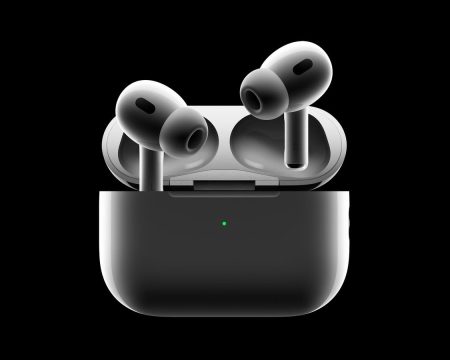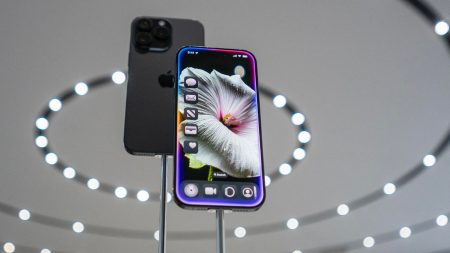Taking a look back at another week of news and headlines from Cupertino, this week’s Apple Loop includes the latest iPhone 15 Pro leaks, problems with the Mac Pro, a review of the Mac Studio, why the MacBook Air is running slow, DirectX support for macOS gaming, the future of Apple Vision Pro, and more App Store woes.
Apple Loop is here to remind you of a few of the very many discussions that have happened around Apple over the last seven days (and you can read my weekly digest of Android news here on Forbes).
iPhone 15 Pro Price Leaks
Although there is some disagreement on how much (with estimates between $100 and $200, it’s clear that Apple is looking at a big increase in the price of your next iPhone. It’s also going to make sure the Pro models are far more attractive than the vanilla models:
“The wider gap between Pro and non-Pro prices would make a lot of sense, given the standard models are increasingly based on the Pro versions from the year before. For example, the iPhone 15 and iPhone 15 Plus will adopt the same design and chipset as the iPhone 14 Pro and iPhone 14 Pro Max. In contrast, the iPhone 15 Pro and Pro Max will receive an updated design, next-gen chipset and upgraded cameras.”
(Forbes).
Mac Pro Problems
The key advantage of the Mac Pro over other macOS machines is the ability to use PCI-E expansion cards. Even with the limited support offered by Apple Silicon, this is an almost default requirement. This makes it a touch embarrassing that it’s not quite up to scratch at launch:
“The new 2023 Mac Pro comes with slots for PCI-E expansion cards, but due to the design of Apple Silicon, it can only support a limited number of types of card. Chiefly it can be used for extra storage, but now Apple has revealed that there can be a problem with even this: “Certain models of internal SATA drives might unexpectedly disconnect from your computer after your Mac wakes from sleep,” says Apple in a new support document. “This can occur if your Mac automatically goes to sleep or if you manually put your Mac to sleep.”
(Apple Insider).
Reviewing The Mac Studio
For many, the MacPro will be a step beyond what they need; Apple’s Mac Studio feels like the more affordable ‘Pro’ option compared to the peak performance the Mac Pro offers. The first reviews are in, and PC Mag’s Joe Osborne has taken the Studio through its paces:
“…2023’s revised Mac Studio brings serious heat for everything you’ll throw at it, with an advantage over the competition in memory bandwidth, GPU core count, and—in some cases—price. For that, we once again grant the Mac Studio our Editors’ Choice award for high-end desktop workstations. Just please start including the peripherals in the box already, Apple?”
(PC Mag).
Speed Isn’t Always Everything
Apple’s latest MacBook Air may have a larger screen, but there’s a sting in the tail of the newest laptop. Just like the 13-inch model, the 15-inch M2 MacBook Air is going to have a slower read/write speed than the M1 MacBook Air models.
“A teardown of the 15-inch MacBook Air by the YouTube channel Max Tech found that all of the 256GB of capacity is on a single chip. The same model with more storage has two NAND chips, which gives them read/write performance up to twice as fast. Benchmarks done by Max Tech bear this out, with SSD performance half the speed of a 2020 MacBook Air running an M1 processor.
(Max Tech via Cult of Mac).
DirectX Support In macOS
One of Apple’s biggest blind spots is gaming. While there are several key titles on mobile, the AAA games for anything other than mobile are as rare as a Psion Series 3a in an American retrospective of PDAs. Windows PC and Consoles have a monopoly on the big titles. Tucked away in WWDC was a note that could offer those developers a cost-effective path to macOS:
“But buried in the keynote was a macOS feature that Apple should have called out with more fanfare: DirectX 12 support for macOS. As PC gamers already know, this software support means the floodgates are open for some real games — not that casual Apple Arcade stuff — on Mac. Maybe, just maybe, this is the beginning of the end to the old joke that Macs can’t play AAA games.”
(Inverse).
Apple Vision Pro’s Future Plans
It should come as no surprise that Apple’s future plans for the Apple Vision Pro family will have rather a lot of patents and trademarks involved. So the filings this week give us a good idea of what Apple is focusing on, including the ability to record from its headsets:
“Today, the U.S. Patent Office published two trademark filings from Apple relating to the Apple Vision Pro headset titled “Spatial Memories.” Apple Vision Pro will bring a new dimension to powerful, personal computing by changing the way users interact with their favorite apps, capture and relive memories, enjoy stunning TV shows and movies, and connect with others in FaceTime. While Apple didn’t highlight ‘Spatial Memories’ in their press release, they obviously felt it was a marketing term that they wanted trademarked.”
(Patently Apple).
And Finally…
This week, another reminder that developers do not have a blank canvas when developing applications for the iPhone, iPad, and Apple’s wider mobile platform. Social media network Damus was informed that Apple was not happy with its ‘tipping’ system and it would need to be changed:
“Apple originally told Damus it would have to adjust its bitcoin tipping feature, zaps, to be compliant with app store guidelines. Specifically, Apple claimed zaps could enable users to sell digital content outside of Apple’s in-app purchases mechanism, violating the guidelines. It’s important to note that Apple takes a 30% cut on most in-app purchases, per data compiled by Statista.”
Damus, like every other app developer, has no choice but to go through Apple’s inspection process if they want their apps to run on any iPhone.
(Blockworks).
Apple Loop brings you seven days worth of highlights every weekend here on Forbes. Don’t forget to follow me so you don’t miss any coverage in the future. Last week’s Apple Loop can be read here, or this week’s edition of Loop’s sister column, Android Circuit, is also available on Forbes.
Read the full article here










